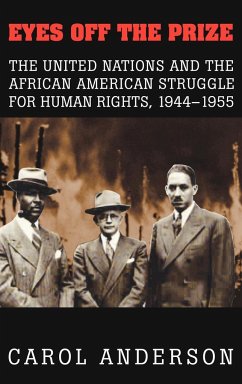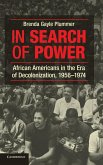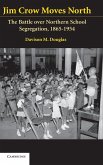As World War II drew to a close and the world awakened to the horror wrought by white supremacists in Nazi Germany, African American leaders, led by the NAACP (National Association for the Advancement of Colored People), sensed the opportunity to launch an offensive against the conditions of segregation and inequality in America. The 'prize' they sought was not civil rights, but human rights. Only the human rights lexicon, shaped by the Holocaust and articulated by the United Nations, contained the language and the moral power to address not only the political and legal inequality but also the education, health care, housing, and employment needs that haunted the black community. But the onset of the Cold War and rising anti-communism allowed powerful Southerners to cast those rights as Soviet-inspired. Thus the Civil Rights Movement was launched with neither the language nor the mission it needed to truly achieve black equality.
Table of contents:
Introduction: the struggle for black equality; 1. Beyond Civil Rights: the NAACP, the United Nations, and redefining the struggle for black equality; 2. The struggle for human rights: African Americans petition the United Nations; 3. Things fall apart; 4. Bleached souls and red negroes; 5. The mirage of victory; Epilogue: the prize.
In the aftermath of World War II and the Holocaust, African American leaders went before the United Nations to fight against the conditions of segregation and inequality in the United States. The 'prize' they sought was human rights - including the right to education, health care, housing, and employment.
An account of the politics that forced the NAACP to abandon their human rights agenda.
Hinweis: Dieser Artikel kann nur an eine deutsche Lieferadresse ausgeliefert werden.
Table of contents:
Introduction: the struggle for black equality; 1. Beyond Civil Rights: the NAACP, the United Nations, and redefining the struggle for black equality; 2. The struggle for human rights: African Americans petition the United Nations; 3. Things fall apart; 4. Bleached souls and red negroes; 5. The mirage of victory; Epilogue: the prize.
In the aftermath of World War II and the Holocaust, African American leaders went before the United Nations to fight against the conditions of segregation and inequality in the United States. The 'prize' they sought was human rights - including the right to education, health care, housing, and employment.
An account of the politics that forced the NAACP to abandon their human rights agenda.
Hinweis: Dieser Artikel kann nur an eine deutsche Lieferadresse ausgeliefert werden.







